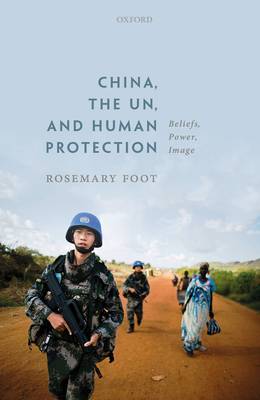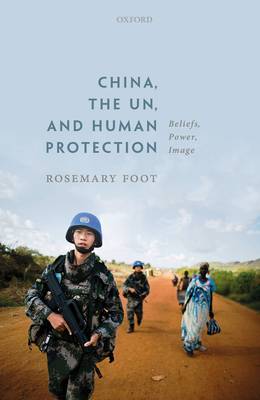
- Afhalen na 1 uur in een winkel met voorraad
- Gratis thuislevering in België vanaf € 30
- Ruim aanbod met 7 miljoen producten
- Afhalen na 1 uur in een winkel met voorraad
- Gratis thuislevering in België vanaf € 30
- Ruim aanbod met 7 miljoen producten
Zoeken
€ 48,95
+ 97 punten
Uitvoering
Omschrijving
Over a relatively short period of time, Beijing moved from dismissing the UN to embracing it. How are we to make sense of the People's Republic of China's (PRC) embrace of the UN, and what does its engagement mean in larger terms? This study focuses directly on Beijing's involvement in one of the most contentious areas of UN activity -- human protection -- contentious because the norm of human protection tips the balance away from the UN's Westphalian state-based profile, towards the provision of greater protection for the security of individuals and their individual liberties. The argument that follows shows that, as an ever-more crucial actor within the United Nations, Beijing's rhetoric and some of its practices are playing an increasingly important role in determining how this norm is articulated and interpreted. In some cases, the PRC is also influencing how these ideas of human protection are implemented. At stake in the questions this book tackles is both how we understand the PRC as a participant in shaping global order, and the future of some of the core norms which constitute that order.
Specificaties
Betrokkenen
- Auteur(s):
- Uitgeverij:
Inhoud
- Aantal bladzijden:
- 326
- Taal:
- Engels
Eigenschappen
- Productcode (EAN):
- 9780198843740
- Verschijningsdatum:
- 28/07/2020
- Uitvoering:
- Paperback
- Formaat:
- Trade paperback (VS)
- Afmetingen:
- 152 mm x 231 mm
- Gewicht:
- 498 g

Alleen bij Standaard Boekhandel
+ 97 punten op je klantenkaart van Standaard Boekhandel
Beoordelingen
We publiceren alleen reviews die voldoen aan de voorwaarden voor reviews. Bekijk onze voorwaarden voor reviews.











